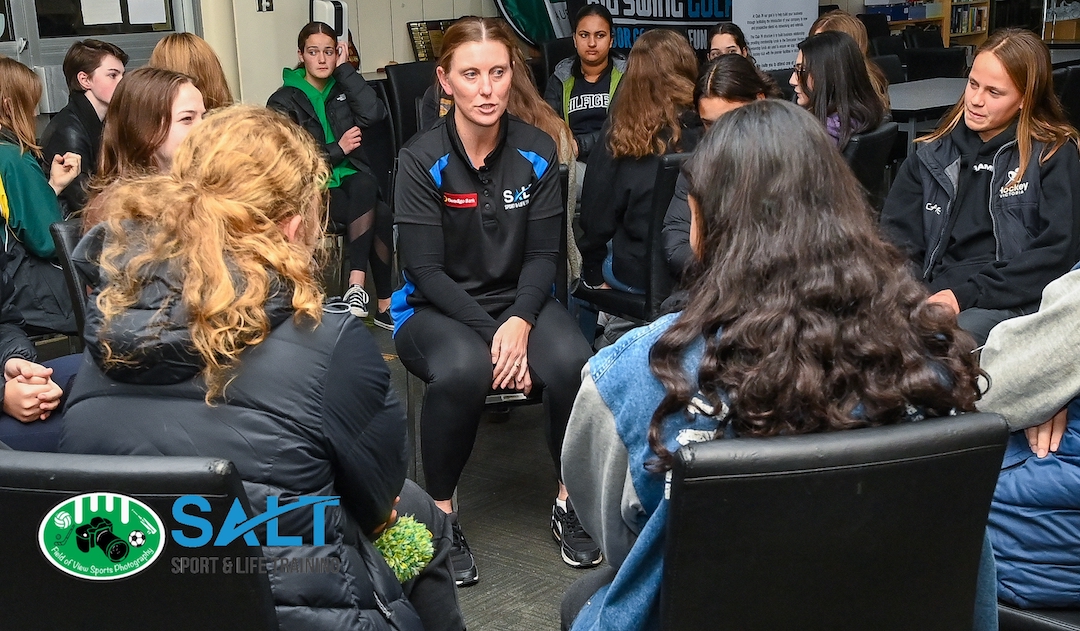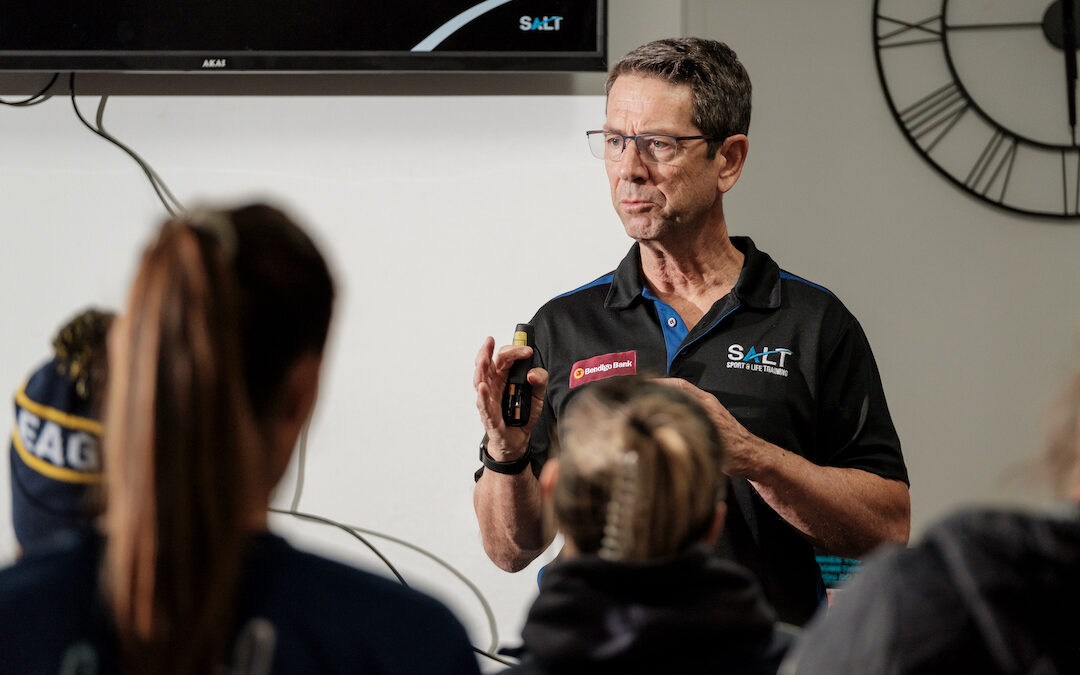David Burt is the CEO and founder of Sport and Life Training (SALT), a charity promoting positive mental health through partnerships with Australian sporting clubs.
According to LifeLine, a startling 8.6 Aussies die every day by suicide, more than double the amount of people who die on the road. Sadly, suicide is the leading cause of death for Aussies between the ages of 15 and 44.
We spoke to David about the resounding impact mental health has on the community, and how SALT is reducing the stigma of seeking help.
What inspired you to start SALT?
I was inspired to start SALT after working with 7 sporting clubs, each of which had experienced the loss of somebody they loved to suicide. As we worked through their grief, people were open, vulnerable, and committed to each other. The sporting clubs became places of outstanding community support.
The problem was, it shouldn’t have taken a suicide to create this environment. Most sporting clubs encourage teamwork, leadership and social benefits daily, but they also have blind spots when it comes to alcohol abuse, sexualised attitudes towards women and hyper masculinity. I wanted to address these issues in a proactive way and create genuine communities of care. This is what drove me to establish SALT.

A SALT presenter talking with girls from a local sports club © SALT
How did your previous experience as a sport educator help when establishing the organisation?
When working with sporting clubs, it is important to understand the language and expectations of the community. Clubs want to win and they want to develop players who make it to the highest levels. But they’re also run by passionate people, so it’s important to approach them with sensitivity, especially when trying to challenge current behaviours.
Because of my experience as a sport educator, I knew that any successful education program had to be non-judgemental, it had to build on the existing strengths of the club, and it had to be fast paced, interactive and story based. I wanted the clubs to understand that great culture leads to improved performance and better outcomes for everyone.
I was also aware that education on its own is not enough. We have to show that everyone is responsible for change, and everyone needs to be held accountable. Hence the slogan, ‘Create a new ERA (Education, Responsibility, Accountability) in your club’ was developed and continues to underpin all we do.
How can sport and physical activity help to promote good mental health?
The benefits of sport and physical activity are wide reaching. Being part of a team teaches life skills such as communication and teamwork. It also leads to good physical and mental health.
However, when sport is not managed well, the benefits are lost. This happens when we over-professionalise sport and take the fun out of it. Parents and coaches can be guilty of this, and the outcome is that over half of all kids drop out of sport at 15-16 years of age. The number one reason cited is a lack of participatory fun, at a time in their development when they could most benefit from cross generational support and guidance.

David Burt at North Warrnambool Football and Netball Club © SALT
Why did you decide to target your initiatives to sports clubs?
Typically, sports clubs are far more connected than the workplace or school. People are there because they want to be there, meaning they take on the ethos and culture of the club. Also, with the loss of many other institutions of care that used to be strong 40 years ago, such as churches, neighbourhoods, scouts, YMCA, and the family unit, sporting clubs have remained one of the few places of care readily available for people, especially in regional areas of Australia.
Have you received any feedback from clubs or individuals who have engaged with SALT programs?
We have received hundreds of testimonials about the difference SALT has made in the lives of people and clubs. Sometimes, people will tell us how our programs have led them to seek help from suicidal ideation, so we know we have actually saved lives.
Talk to me about Club Wellbeing Programs. How do they work and what impact have they had so far?
At every club we visit, we start by running a wellbeing and mental health session. This teaches the club how to support themselves, their team mates, and how to establish a culture of positive mental health. We then ask people to volunteer to become members of a Club Wellbeing Team.
This team is normally 4-6 people who become the eyes, ears and heart of caregiving within the club. They do three further training sessions to learn how to administer highly effective care across three levels of intervention. Who they are and what they do is widely advertised in the club community, embedding a new culture of care and connection.

Girls from Mt Evelyn engaging with SALT programs © SALT
How has SALT changed since its foundation in 2015?
When we began SALT in 2015, we focused almost entirely on men in Australian Rules footy clubs. We now work across 20 different sports and have a huge suite of courses that target both men and women. Our courses start at 12 years of age, with a focus on peer pressure and decision making. We also stay involved with clubs well after delivering our sessions to maintain a culture of acceptance and accountability.
What’s next for SALT?
SALT is now looking at national expansion. Through our partnership with Bendigo Bank, we are able to speak to community banks around the country who connect us with their local sporting clubs. This venture is massive and it’s imperative that we find more partners, leagues, SSO’s, funders and advocates who see the incredible potential sporting clubs can have in an age where people have so many issues to deal with. There will never be enough counsellors/ psychologists or after-care facilities to help people live their best lives, and prevention is better than cure. Sporting clubs are filled with an army of volunteers with the heart and opportunity to provide this care.
To read about the program supporting primary school children in rural areas, click here.

